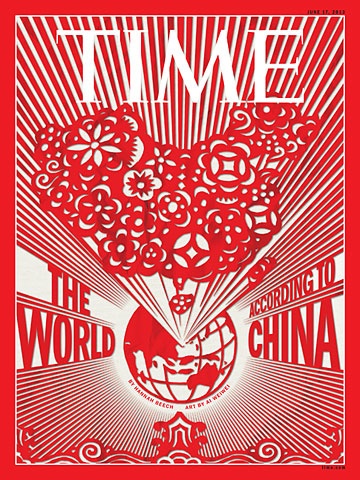
(5 of 7)
China is also embroiled in maritime conflicts in the South China Sea, pitting it against four other Asian rivals that share the vast waterway: Vietnam, Malaysia, Brunei and the Philippines. (Taiwan also maintains claims.) Beijing says that it has long considered roughly 80% of the sea its own but that it was bogged down in the past century with the enormous task of rebuilding the nation and had little time to dedicate to such matters. Now China's behavior has grown more muscular. This year China fired on a Vietnamese ship in contested waters. Last year, dozens of armed Chinese vessels pushed Filipino fishermen out of a disputed shoal. Xi has taken the helm of a task force that deals with maritime issues, unusual micromanagement by a Chinese leader. "There is a unitary message from Xi that any territory is a core national interest and that China is not going to cede any ground," says the University of Chicago's Yang. "This is an extremely dangerous game."
China's behavior is alienating even nations that aren't involved in territorial disputes with it. Take Singapore, the tidy city-state whose population is majority ethnic Chinese. Its founding leader, Lee Kuan Yew, assiduously cultivated ties with Beijing. Yet last year his son, Prime Minister Lee Hsien Loong, sent a warning when he visited the Central Party School in Beijing, the ideological heart of the Chinese Communist Party, which Xi headed until last year. Lee delivered a spirited defense of the U.S., which he cautioned was "not a nation in decline," as some Chinese have been crowing. "The U.S. is an enormously resilient and creative society," said Lee, "which attracts and absorbs talent from all over the world, including many from China and the rest of Asia."
The Great Escape
Mr. Guan wants out. the Beijing property magnate doesn't know where he will go yet, perhaps to a farm in Australia or a ranch in the American West. All he knows is that the place that made him a multimillionaire no longer commands his loyalty. "Frankly speaking, I have lost confidence in this country," he says, noting that most of his wealthy friends now have foreign permanent residency if not passports. "All the economic reforms we've had will be useless if there's no political reform. If I can't change this country, then the best thing is to leave."
On a smoggy Saturday in Beijing, Guan, who asked that his full name not be used, spends his afternoon exploring exit strategies. In an ornate room gilded with Louis XIV curlicues and a U.S. flag, Guan and dozens of others listen to a pitch by Li Zhaohui, the founder of Cansine, a Chinese emigration agency. Guan is presented with an array of options for gaining permanent residency abroad: a €300,000 property deal in Cyprus, a €500,000 villa in Portugal or even a $500,000 stake in a future Kimpton hotel in Milwaukee, a city Li describes as "famous for its high unemployment rate." (In 2012, 70% of applicants for the U.S. EB-5 investor-visa program, which requires a minimum outlay of $500,000, were Chinese.) Cansine's own fee? At least $15,000.
